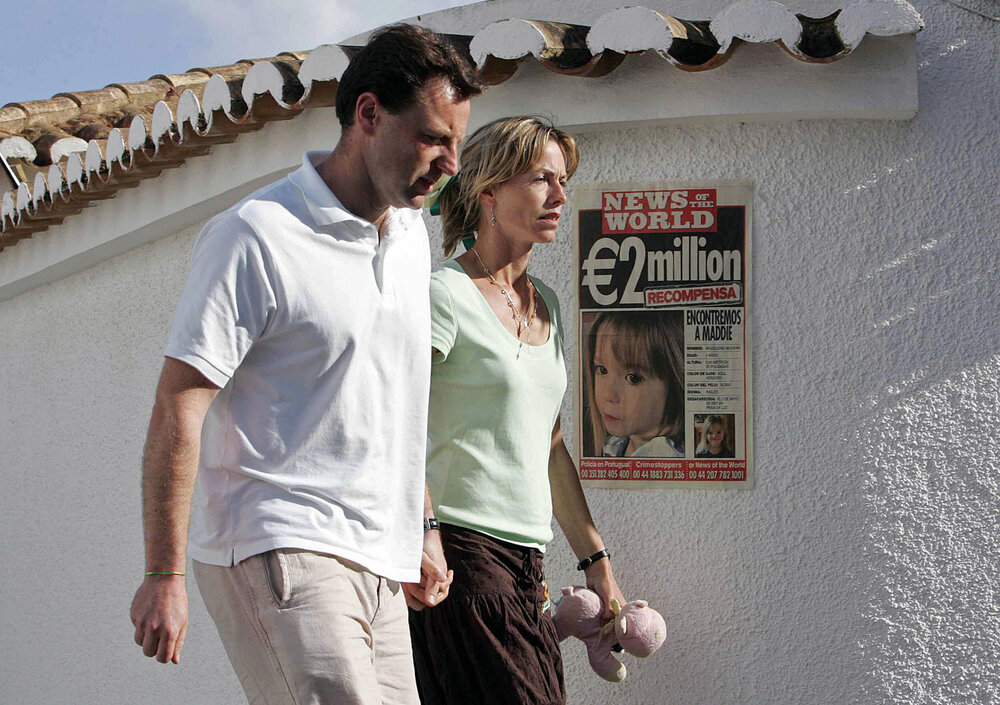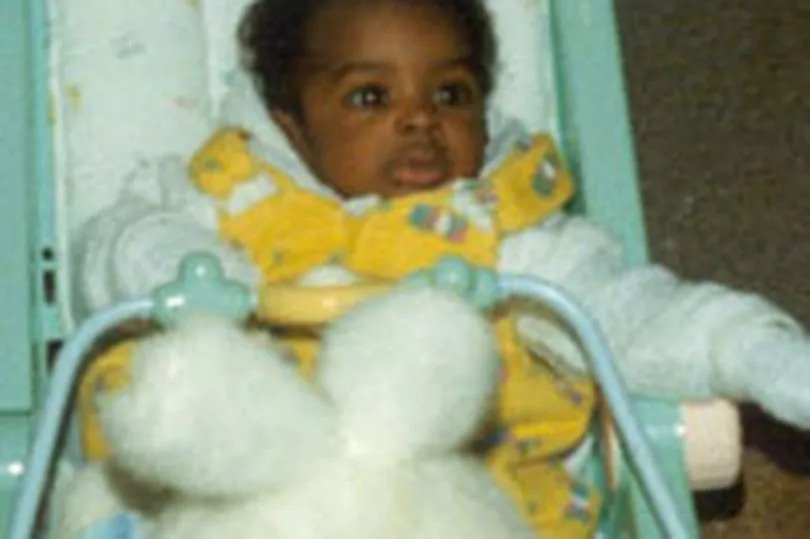BABY AMES Glover went missing in 1990 in Southall, West London, 33 long years ago. He was just five months old. To date there has been no trace of him.
Police appeared to lose interest and the distraught mother, Shanika Ondaatjie, had to plead with them to reopen the missing person’s case 13 years later.
Today, the Metropolitan Police initially told The Voice their records did not go back longer than seven years, despite the case of Madeleine McCann remaining a focus 16 years after she disappeared in Portugal.
After further enquiries, the Met said the case was still open, but then said they were unable to say anything more about the case. In reality their files are dusty.
And while a reservoir was drained last month in the search for clues about Madeleine’s disappearance, there was no indication of anything police were doing for Ames.
Baby Ames, now 33 if he is still alive, has slipped off the missing person’s radar. No one in officialdom seems to care whether he is living or dead. Another forgotten Black missing person.

The baby’s father, Paul Glover, said Ames was snatched from the back seat of his car as he went to a cashpoint. Both parents were interviewed by police but no charges were brought.
The mother, Shanika, spent the subsequent years campaigning and searching for her child.
But there has been no news for the last twenty years, since cops visited Ghana in 2003 and offered an appeal after Shanika publicly criticised the Met.
In 2020 she said: “Although I have tried to move on, there will always be a part of me that cannot. I need to know what happened to Ames.”
Black children are four times more likely to be missing than white children. They are less likely to be found a week after disappearing and, astonishingly, Black kids are less likely to have a missing person’s appeal put out to even find them.
Research from the charity Missing People found that missing white people accounted for 61 percent of publicity appeals while only 22 percent were for missing Black people.
Inaction can have fatal consequences, as witnessed by the case of 19 year old Richard Okorogheye, a sickle cell sufferer who was found dead two weeks after he was reported missing in 2021.
His family were highly critical of the police, which led to an investigation by the Independent Office For Police Conduct (IOPC) watchdog who found a series of issues, leading to an apology by the police.
But have lessons been learned?
Dominic Norton, founder of the group Missing Black People, said official record-keeping was inconsistent, but wider issues around race were still not being taken seriously.
‘’With Madeleine McCann, she was a young girl, but there is lots of research now on ‘missing white woman syndrome’, and that’s what these editors and producers resonate with.
“Typically these women are not Black or from our social economic backgrounds.

“We have to be realistic about the machine of the media. When talking about Black communities what they are leveraging is Black trauma.
“There is no genuine interest in promoting or amplifying the story or campaigning for the family.”
Norton added: “When I speak about the police, whether you’re talking about stop and search, domestic violence, missing people, the issue with them is transparency and communication.
“The response The Voice received from them was not transparent at all. Are they still searching? Are they not searching? What does that actually mean?”
“The collecting of data needs to be improved. Different police forces report differently, especially when it comes to missing people. There is no consistency across police forces.
A Met spokesperson said they were “not prepared to discuss it any further at this stage.” The stage being 33 years since Ames went missing and twenty years since the last known action by police to find him.
“Our recent ethnicity and missing research showed that 14 percent of missing incidents reported to the police are for Black children, even though Black people make up just 4 percent of the population.
“This over-representation is really concerning because of the risks of harm that missing children face, and so we are working with Listen Up on new research to find out more about Black children’s experiences of being missing to help us understand what more could be done to prevent them coming to harm.
“Our research also found that Black children are likely to be missing for longer than white children, with families telling us that they struggled to get police and media attention for their missing Black children.
“We are working with partners including Missing Black People, media agencies and the police to try to address these disparities.”
The charity Missing People recorded that Black children are four times more likely to be missing longer than a week compared to white children.
This raises questions about whether this is just about the individual circumstances of the child, or whether the authorities are spending less time and effort looking.
Research from Missing People published earlier this year revealed that only 16 percent of missing Black children are found by police, while 23 percent of white kids were found. The disparity is even higher for looked after children.
Jahinine Davis, co-founder and director of Listen Up said: “You can’t talk about disparities with missing people without acknowledging the impact of racism; without acknowledging adultification; without acknowledging sections of Black children being more seen as deviant, and how these things influence our safeguarding responses to them.”
The Met Police said the investigation into Ames “remains ongoing”, with a spokesperson adding they were “not prepared to discuss it any further at this stage.”
The stage being 33 years since Ames went missing and twenty years since the last known action by police to find him.
Read more > The invisible minority


Comments Form
1 Comment
This happened soon after baby Alexandra Griffiths was taken then later found. Since baby Ames was taken my eldest grandson has grown up, he had a brother and sister now grown and the two boys have given me two great grandchildren. I am ethnically white British but all this time I have never forgotten Ames – I am an old woman now but thinking about him and particularly his poor Mum will stay with me for the rest of my days. It moved me then. And continues to do so.